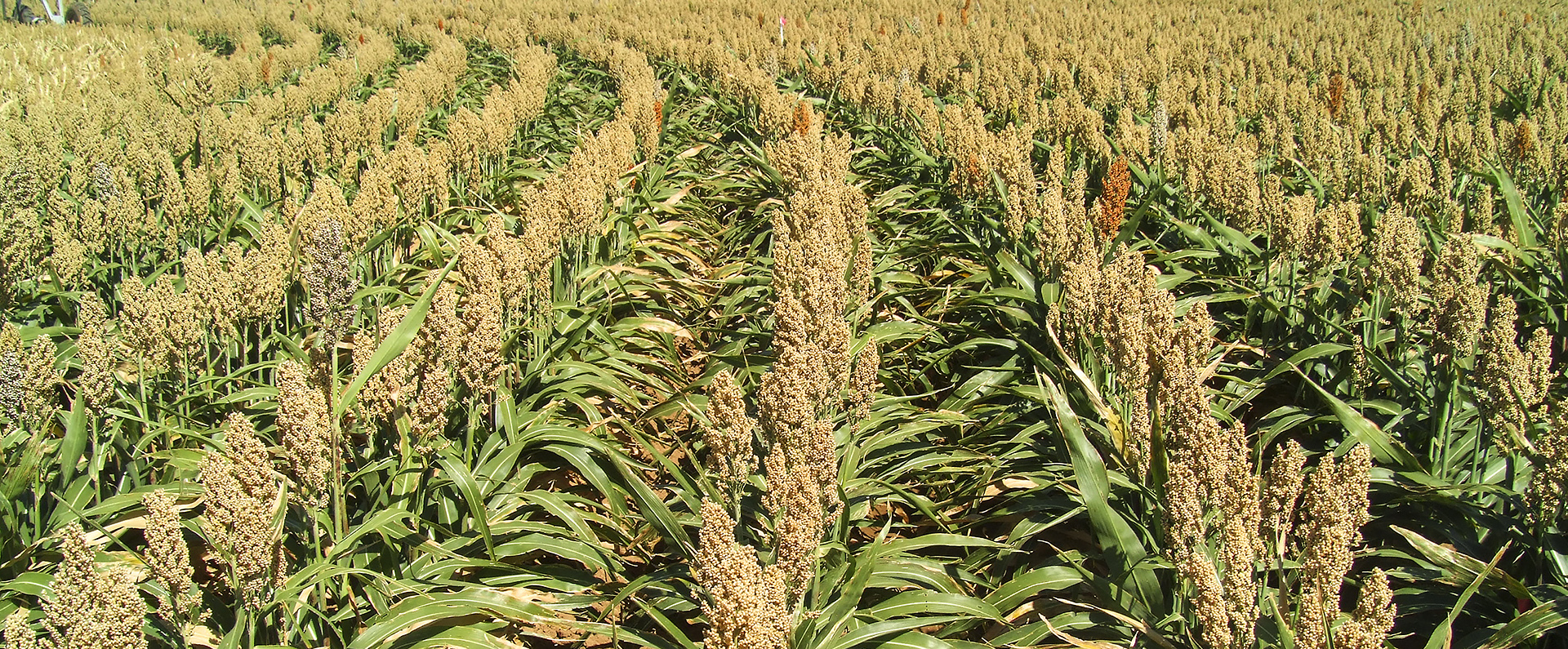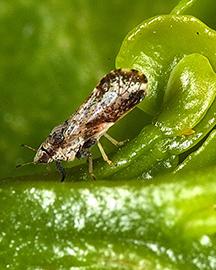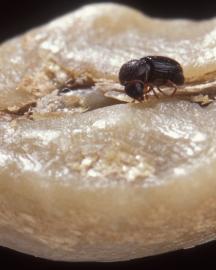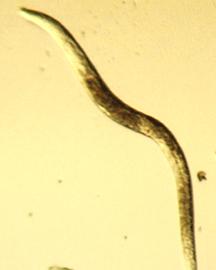Sorghum Self Defense Mechanism May Help Other Crops
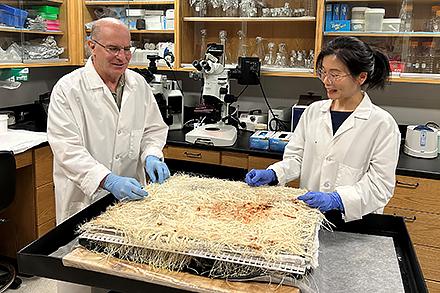
Sorghum is an important crop in the United States and around the world as both a cereal staple and major bio feedstock for ethanol production. Now, ARS scientists at the Natural Product Utilization Research Unit in Oxford, MS, are examining one of the things that makes sorghum naturally resistant to weeds – a natural herbicide the plant secretes from its roots.
Sorghum plants produce sorgoleone in their root hair cells, where it is then secreted into the soil. The compound stifles the growth of nearby pest plants by inhibiting photosynthesis – the ability to use sunlight to synthesize food and other proteins required for critical cellular processes. Scientists have identified the biosynthetic enzymes they need to create sorgoleone. Their goal is to introduce the ability to make the compound into other important food and energy crops, like corn, wheat, and soybean. If successful, farmers will be able to depend on the naturally produced sorgoleone to keep pesky weeds at bay. This would, in turn, help reduce the chance of synthetic chemical herbicide impacts to the environment and reduce the expense of purchasing and spraying synthetic herbicides for farmers.
Related Information
Article: Transferring Sorghum’s Weed-Killing Power to Rice
Publication: Sorgoleone


